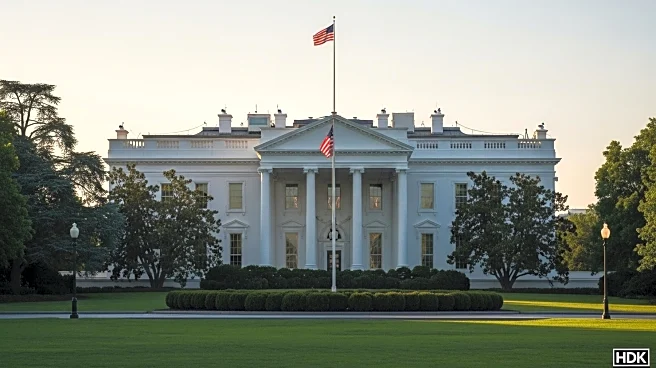What's Happening?
The White House is focusing on post-war plans for Gaza as President Trump and his administration push for a swift resolution to the ongoing conflict. Senior Israeli ministers Gideon Sa'ar and Ron Dermer are in Washington for discussions with U.S. officials. President Trump has expressed frustration with the prolonged fighting and is advocating for a short timeline for military operations, even as Israel plans to capture Gaza City. Prime Minister Netanyahu has announced intentions to reenter negotiations to end the war and secure the release of hostages, although no Israeli delegation has been dispatched yet.
Why It's Important?
The U.S. administration's push for a quick resolution to the Gaza conflict reflects its strategic interest in stabilizing the region and reducing humanitarian impacts. A swift end to the war could lead to renewed diplomatic efforts and potentially improve relations between Israel and Palestine. The involvement of high-level U.S. officials and international figures like Tony Blair indicates the global significance of the conflict and the potential for broader geopolitical shifts. The resolution of the war could also impact U.S. foreign policy and its role in Middle Eastern affairs.
What's Next?
Negotiations are expected to continue, with the possibility of a ceasefire and hostages being released. The IDF is preparing for a takeover of Gaza City, while Hamas has launched a campaign urging civilians to remain. The timeline for a conclusive ending to the war is predicted to be within weeks, although some officials suggest it could extend to the end of the year. The outcome of these discussions will likely influence future diplomatic and military strategies in the region.










